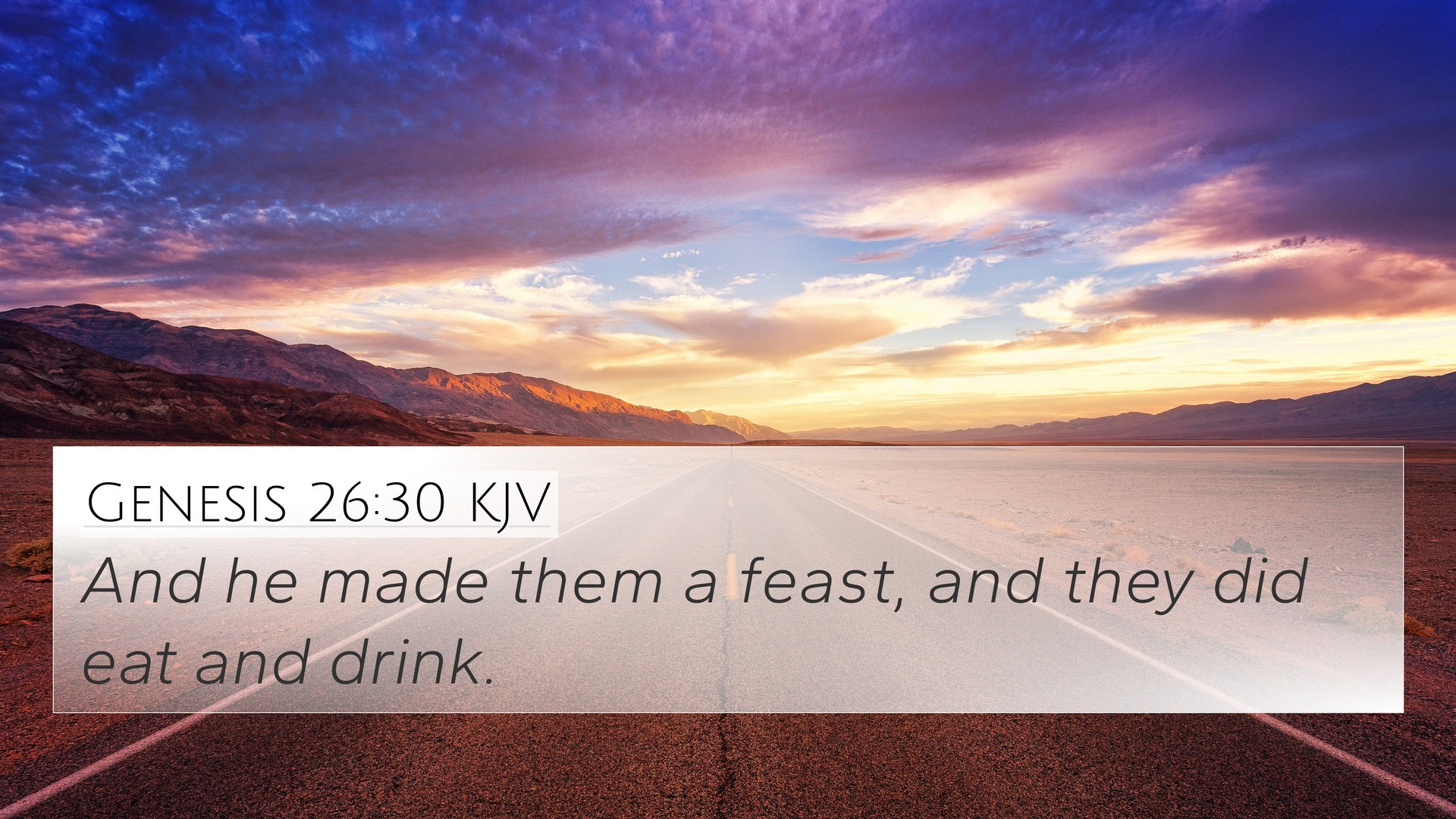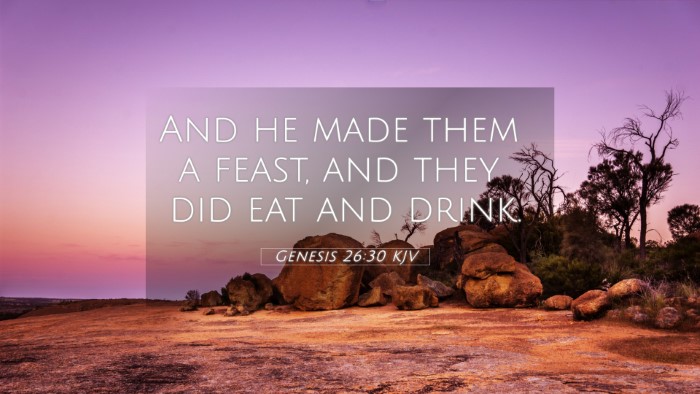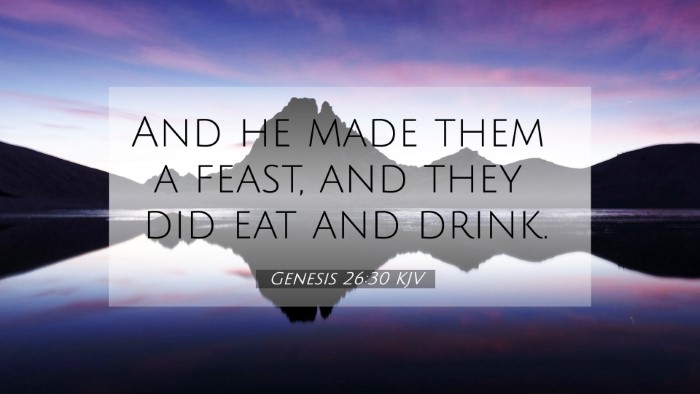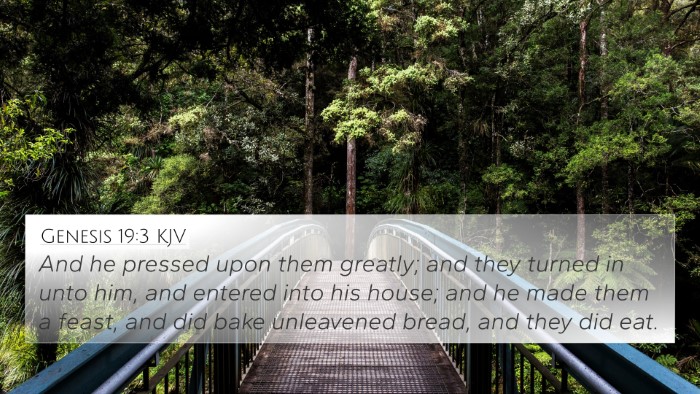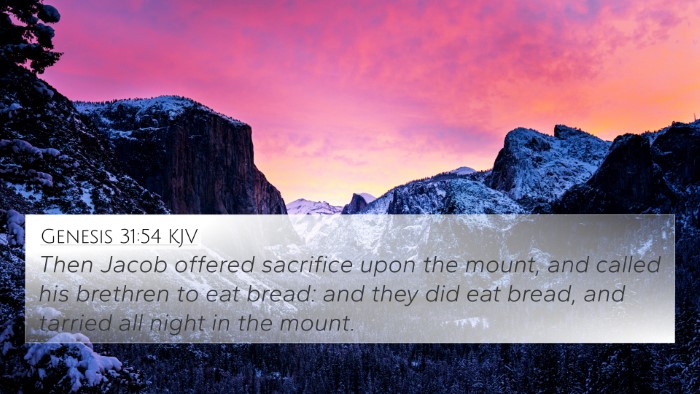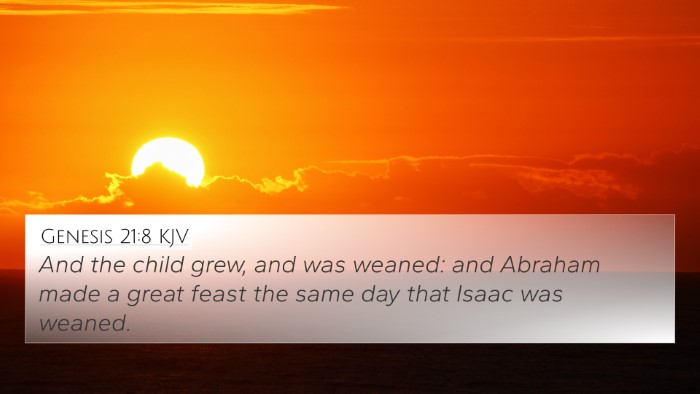Understanding Genesis 26:30
Verse: "And he made them a feast, and they did eat and drink." (Genesis 26:30)
General Interpretation
The verse is set during a period of conflict between Isaac and the Philistines. After a series of disputes over water rights, Isaac finds a new well and receives peace from King Abimelech. This verse depicts the resolution of hostility through a feast, symbolizing reconciliation and friendship.
Insights from Public Domain Commentaries
Matthew Henry's Commentary
Matthew Henry notes that Isaac's actions demonstrate a significant act of hospitality which serves to mend relationships. The feast symbolizes unity and peace, a central theme throughout the Bible as true reconciliation requires understanding and celebration rather than mere agreement.
Albert Barnes' Notes
In his commentary, Albert Barnes emphasizes the cultural importance of sharing a meal in ancient times. It was often a gesture of goodwill and signifies the cessation of hostility. The feast is an assurance of Isaac’s goodwill and marks a turning point in his dealings with Abimelech.
Adam Clarke's Commentary
Adam Clarke points out the importance of the feast as a sign of peace and covenant. He asserts that sharing food represents not only familial ties but also the establishment of alliances. Clarke correlates this with other biblical principles of hospitality found throughout scripture.
Cross-References for Genesis 26:30
This verse is closely related to several other scriptures, demonstrating thematic Bible verse connections. Here are some cross-references:
- Genesis 21:27-31 - The covenant between Abraham and Abimelech indicates a lasting peace through similar acts of hospitality.
- Genesis 31:54 - Jacob and Laban share a feast to mark a treaty, illustrating the use of food to celebrate agreements.
- Exodus 24:11 - A meal during the confirmation of the covenant represents God's relationship with His people.
- 1 Samuel 20:29 - David’s friendship with Jonathan involved sharing meals, emphasizing loyalty and bond.
- Luke 22:14-20 - Jesus shares a meal during the Last Supper, establishing a new covenant that all believers partake in.
- Acts 2:46 - The early church broke bread together as a sign of communion and unity.
- Romans 14:17 - Paul speaks of the kingdom of God involving righteousness, peace, and joy, linking to the significance of fellowship through meals.
- Revelation 3:20 - Christ invites believers to dine with Him, symbolizing inclusion and relationship.
Thematic Connections
This verse exemplifies broader biblical themes such as:
- Reconciliation: The act of eating together signifies overcoming differences.
- Hospitality: A recurring theme throughout the Bible exemplifying love and acceptance.
- Covenant Relationships: Meals often signify commitments between parties, both in the Old and New Testaments.
Conclusion
Genesis 26:30 serves as a profound reminder of the importance of hospitality and reconciliation in human relationships as well as one's relationship with God. The communal meal shared by Isaac and Abimelech symbolizes that peace is achievable and marks the transition from conflict to unity. This notion is foundational in Christian teachings and can be further explored through comprehensive Bible cross-reference materials and tools.
Further Study
For deeper insights, utilizing a Bible concordance or cross-reference Bible study can enhance understanding of this verse and its connections. Exploring themes such as reconciliation and hospitality can provide enriching context in both personal study and sermon preparation.
Related Study Resources
For those interested in cross-referencing biblical texts, consider using:
- Online Bible Study Tools to find contextual connections across scripture.
- Bible Study Guides focused on hospitality themes in the Bible.
- Commentaries on the Old Testament for in-depth analysis of events surrounding Genesis 26:30.
